Backed By Ex ADA Jonathan Fink, Richard Luthmann Exposes Alleged Lies and Crimes of 'Crooked' Special Prosecutor Eric Nelson To Brooklyn Judge Donald Leo
Ex-Lawyer Luthmann Questions Integrity of NY Legal System in Court Battle; Fink Agrees About Constitutional Defects; Nelson Continues Lies and Perjury
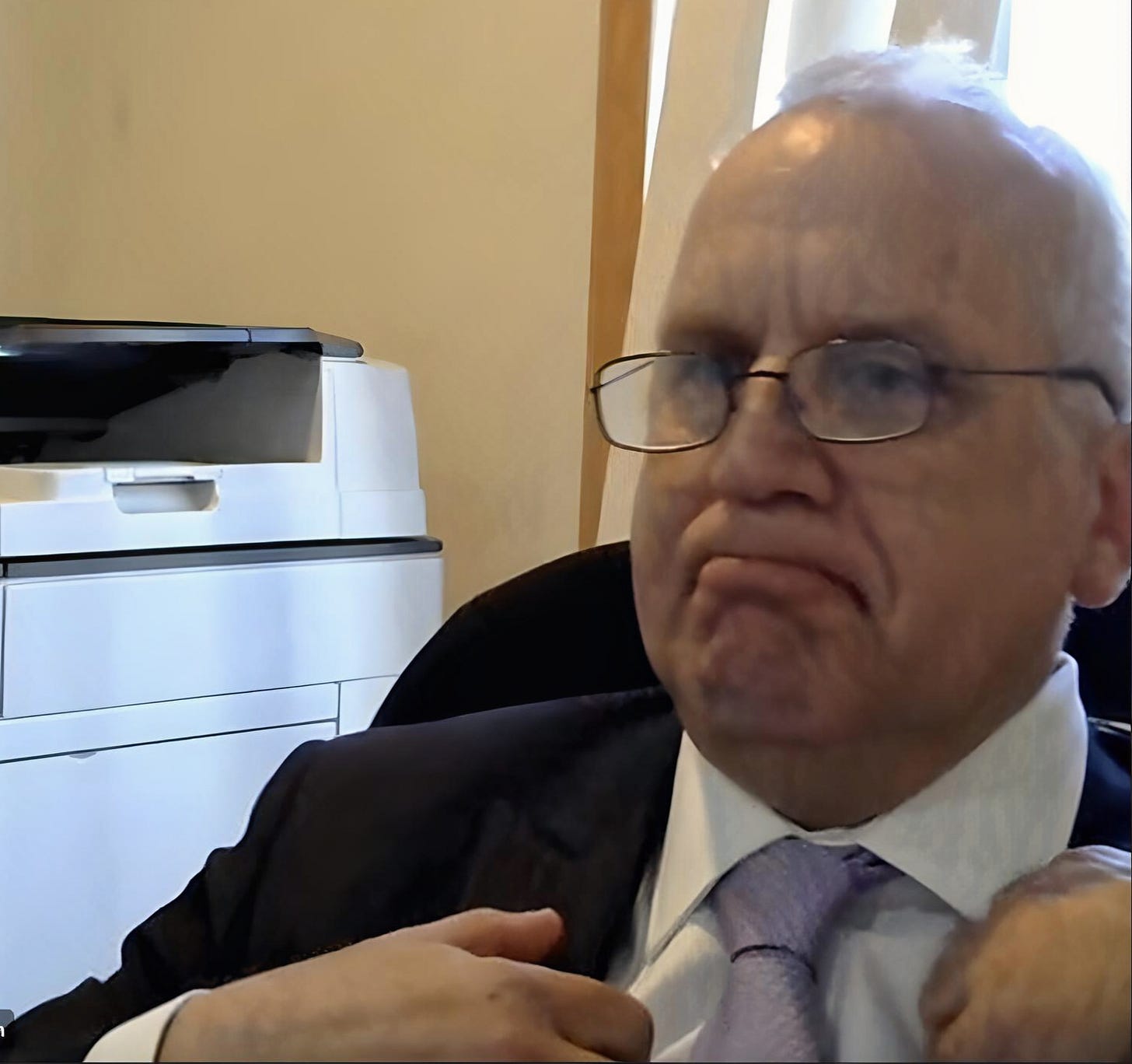
By Dick LaFontaine
The confrontation between former attorney Richard Luthmann and Staten Island Special Prosecutor Eric Nelson has transcended its initial contours. This case, often called the "Fake Facebook" saga, has become a battle of some significance.
Luthmann, a contributor to this publication, has launched a fiery crusade challenging the very pillars of New York State's justice system. What he terms as Nelson's "crooked" practices has brought courtroom drama to the public eye and raised profound questions about the justice system’s integrity and what happens when prosecutorial conduct becomes criminal.
Luthmann's allegations against Nelson are severe and unparalleled. He accuses Nelson of egregious misconduct in his pursuit of a conviction.
"Nelson made a disbarred felon the legal advisor of the People of the State of New York. He committed a felony," Luthmann charged in open court before Judge Donald Leo in December, his voice resonating with accusation and outrage from behind his Florida computer screen.
This bold claim, suggesting a prosecutor's felony to secure an indictment, is potentially groundbreaking in the annals of legal ethics and criminal law.
Nelson denied all wrongdoing in his submitted court affidavits and again at oral argument. In a detailed rebuttal, Luthmann went on a relentless offensive, meticulously dismantling Nelson's defense. He argued fiercely against Nelson’s conduct and decisions, suggesting a blatant disregard for legal norms and ethical standards.
"The entire perception of the justice system is at risk," Luthmann contended, emphasizing the gravity of the alleged misconduct.
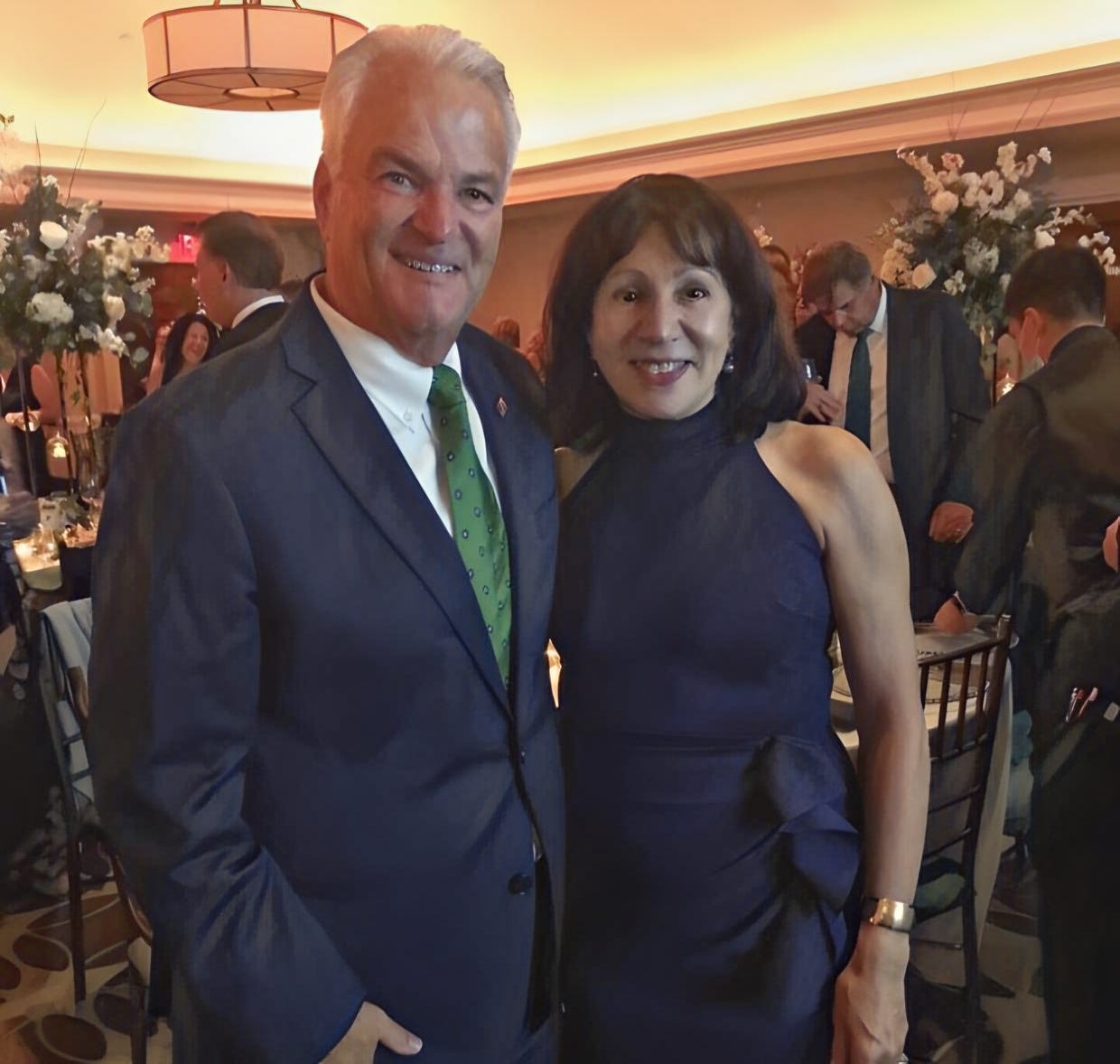
The conflict escalated beyond legal arguments, with Luthmann unleashing a torrent of criticism against Nelson and other key figures, including Staten Island District Attorney Michael E. McMahon. In his comments to reporters post-hearing, Luthmann's anger was palpable.
“Nelson is nothing but a criminal masquerading as a prosecutor,” Luthmann blasted. He extended his vehement criticism to the DA and his NYS Supreme Court Justice wife, accusing them of being part of a systemic corruption.
“The McMahons are complicit in this corrupt, politically-motivated machine. This is Joe Hines on steroids, and I’m John Kennedy O’Hara who quite literally got <expletive> in the ass,” Luthmann alleged, sparing no words in his rebuke.
In response, Nelson defended his actions, asserting the validity of his prosecutorial conduct.
“The charges against Mr. Luthmann were pursued with complete adherence to legal standards,” Nelson claimed in his affidavit, categorically denying Luthmann's misconduct allegations. Nelson maintained a firm stance, emphasizing the legitimacy of the legal process.
“Mr. Luthmann’s plea was voluntary, made with full awareness of its implications,” he asserted, countering Luthmann’s claims of coercion and unethical practices.
Yet, Luthmann’s narrative, fueled by his personal ordeal and legal expertise, painted a starkly different picture. He detailed his traumatic experiences, including time in the Special Housing Unit (SHU) and subsequent prison abuse, which he attributed directly to the actions and decisions made in the course of his prosecution.
“I was subjected to inhumane treatment, a direct result of Nelson’s crooked actions,” Luthmann stated, conveying the depth of his personal and legal turmoil.
This legal battle, marked by Luthmann's incendiary allegations and Nelson’s steadfast denials, raises critical questions. The boundaries of prosecutorial power, the integrity of legal proceedings, and the impact of individual actions within the broader framework of the New York State Justice System are all tested.
The parties return to court on January 17 for Judge Leo’s ruling.
Luthmann’s Accusatory Barrage: A Prosecutor’s Alleged Felony
Richard Luthmann’s allegations against Staten Island Special Prosecutor Eric Nelson are not merely accusations of ethical lapses but charges of outright criminal behavior in the line of duty. Luthmann, with a tone of anger and legal acumen, has boldly accused Nelson of committing more than one felony, actions he portrays as unprecedented breaches of legal ethics and criminal law within the prosecutorial realm.
The case was argued before Judge Donald Leo in Brooklyn Criminal Court. Though initially before Staten Island Justice Marina Cora Mundy, she “punted” the matter to Brooklyn because of judicial politics, Luthmann says. “She couldn’t have been seen as going against the McMahons on Staten Island, even if she wanted to,” he said, referring to the powerful political couple.
Luthmann's New Favorite Punter: Marina C. Mundy aka Judge Ray Guy, a Hall of Famer
Last January, Richard Luthmann, now a disbarred lawyer and a former prisoner, now on probation, recently filed a 264-page motion in New York State Supreme Court calling on Justice Marina C. Mundy, who sentenced him in the Fake Facebook case, to throw out the case. She "punted" the case to Brooklyn, and it was caught by Judge Donald Leo.
“Nelson’s actions went far beyond the pale of prosecutorial discretion; they crossed into the territory of criminal conduct,” Luthmann declared, setting a grave tone in the courtroom from his video link.
He specifically targeted the relationship between Nelson and Perry Reich, a disbarred attorney, alleging a deep-seated conspiracy aimed at securing his indictment.
Special Prosecutor Eric Nelson Commits Perjury in Sworn Statement in Luthmann Case
Staten Island Special Prosecutor Eric Nelson's court filings in People v. Luthmann are larded with perjury and lies. Nelson committed the felony of the Unauthorized Practice of Law, engaging disbarred attorney and convicted felony Perry Reich as the legal advisor to the People of the State of New York, and then denied it, despite "smoking gun" evidence.
“What we have here is a prosecutor, Eric Nelson, knowingly engaging with a disbarred felon to manipulate legal proceedings. This is not just unethical; it's a felony,” Luthmann argued, presenting his charge as a critical moment of legal reckoning.
Luthmann systematically laid out his case against Nelson in an impassioned address during the oral argument.
“Let’s look at the facts, the email dated August 12, 2018, between Nelson and Reich. It’s a smoking gun, clear evidence of a conspiracy to undermine the grand jury’s understanding of my constitutional rights,” Luthmann stated, emphasizing the gravity of Nelson’s alleged misconduct.
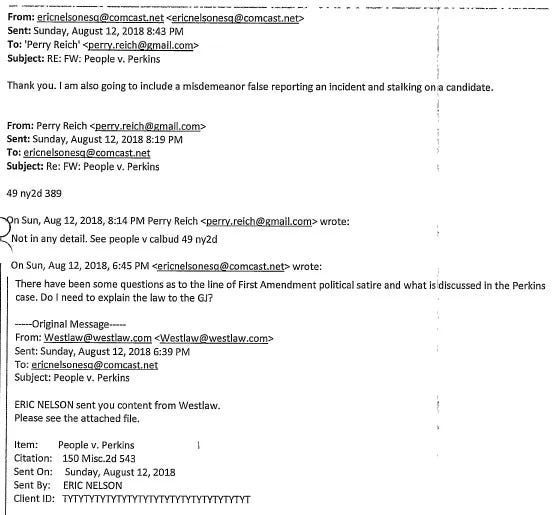
Luthmann further intensified his accusations post-hearing in statements to the press, especially targeting Nelson and the McMahons.
“This goes beyond Nelson; it’s a systematic issue. Mike McMahon and his circle are part of this corrupt machinery that’s undermining our justice system,” Luthmann claimed, painting a picture of widespread corruption and misconduct.
In response, Nelson firmly denied these grave allegations, defending the integrity of his actions.
“The prosecution of Mr. Luthmann was conducted in strict adherence to legal and ethical standards. There was no collusion with disbarred attorneys, nor any attempt to subvert Mr. Luthmann’s constitutional rights,” Nelson asserted in his affidavit, attempting to dismantle Luthmann’s accusations.
This case has turned into a battleground, testing the limits of prosecutorial power and the resilience of legal ethics in the New York justice system. Luthmann’s charges, if substantiated, could not only upend the particular case against him but also signal a seismic shift in how prosecutorial conduct is perceived and regulated in New York’s legal landscape.
Attorney Jonathan Fink’s Corroboration: Reinforcing Luthmann’s Stance
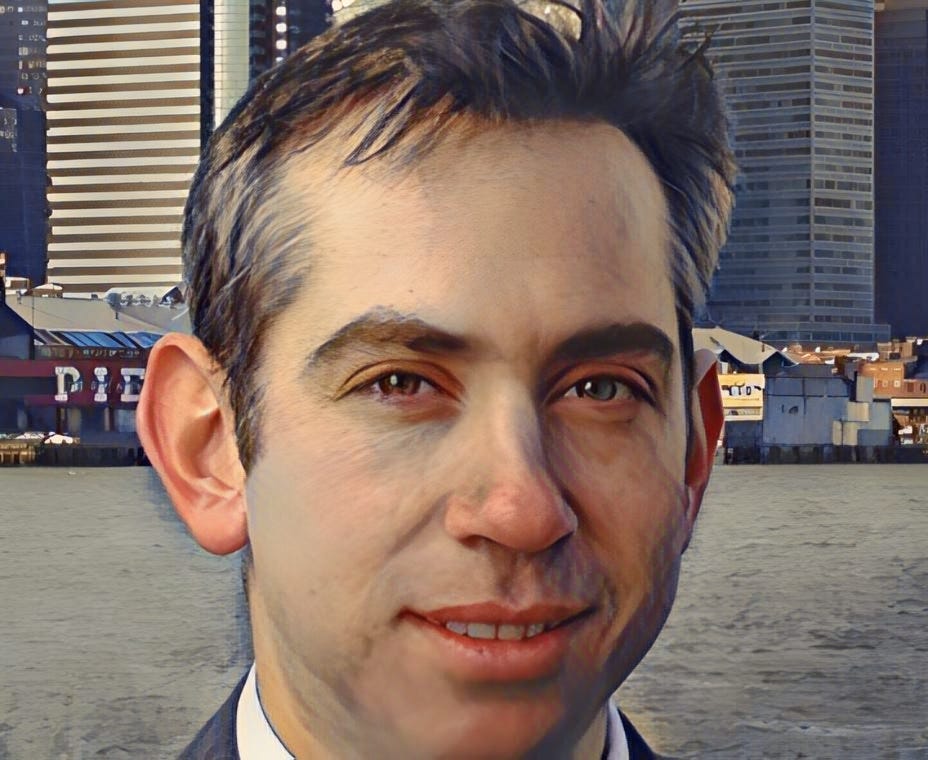
The support of Criminal Attorney Jonathan Fink, a former Assistant District Attorney and a respected figure in the legal community, has significantly bolstered Richard Luthmann’s case. Fink's corroboration of Luthmann’s claims about constitutional violations added a layer of legal legitimacy to the allegations, suggesting fundamental problems with taking Luthmann’s plea.
“It is clear that Mr. Luthmann’s constitutional rights have been grossly violated in this case,” Attorney Fink, Luthmann’s appointed legal advisor, stated, lending his voice to the chorus of criticism against the prosecution.
In the courtroom, Attorney Fink's support provided a critical counterbalance to Nelson's defense. He emphasized the irregularities and potential violations that marred Luthmann’s plea process.
“The plea taken from Mr. Luthmann was influenced by factors that should never play a role in our justice system,” Attorney Fink argued.
Furthermore, Attorney Fink's legal expertise and background as a former prosecutor gave credence to Luthmann’s claims that the plea transcript was devoid of Luthmann’s actual and explicit consent and waiver to physical court appearance while in federal custody, as required by the New York Criminal Procedure Law.
In response to Attorney Fink’s assertions, Nelson maintained his innocence and adherence to legal procedures.
“The allegations of collusion and misconduct are baseless and without merit,” Nelson countered, standing firm against the mounting accusations.
Nelson’s Counter: Defending Against Accusations
In the face of Luthmann’s scathing allegations, Special Prosecutor Eric Nelson stood firm, presenting a robust defense to counter the claims of criminal misconduct and unethical behavior. In his curt-submitted affidavit and throughout the oral argument, Nelson maintained that his actions were within the bounds of legal propriety and vehemently denied any wrongdoing.
“The charges against Mr. Luthmann were pursued with complete adherence to legal standards. His plea was voluntary, made with full awareness of its implications,” Nelson stated in his affidavit, aiming to dismantle Luthmann’s narrative of prosecutorial crimes, ethical violations, and constitutional missteps.
Corrupt Special Prosecutor Nelson Concedes Luthmann's Fake Facebook Conviction is Going Away
Eric Nelson is an “incompetent by design” Staten Island special prosecutor. Eric Nelson is also a stone-cold criminal. I will present the facts, you decide.
Nelson elaborated on his defense during the oral argument, countering Luthmann’s claims.
“There has been no collusion with disbarred attorneys, nor any attempt to subvert Mr. Luthmann’s constitutional rights,” Nelson argued, categorically denying the accusations of engaging with a disbarred felon to manipulate legal proceedings.
Nelson also addressed the allegations concerning the plea process, emphasizing its voluntary nature and Luthmann’s informed consent.
“Mr. Luthmann had ample opportunity to discuss the case with his attorneys and made his plea knowingly,” Nelson contended, challenging the notion that Luthmann’s plea was made under duress or threat.
Attorney Fink’s Clarifying Remarks: Correcting Nelson’s Misconceptions
In the escalating legal battle between Richard Luthmann and Special Prosecutor Eric Nelson, Jonathan Fink, a former Assistant District Attorney, has played a crucial role in clarifying the complex legal nuances and correcting misconceptions. Fink’s insights and statements countered Nelson’s defense, emphasizing potential irregularities in Luthmann’s prosecution.
During the oral argument, Fink sought to correct the narrative portrayed by Nelson. “It’s imperative to understand the context and the environment in which Mr. Luthmann’s plea was made,” Fink stated, suggesting that the circumstances surrounding Luthmann’s plea were far from ordinary. He highlighted that the plea, according to Luthmann, was influenced by external pressures, thus challenging its validity.
Fink’s remarks addressed the heart of Luthmann’s allegations, focusing on the claim that Luthmann’s constitutional rights were violated during the plea process. “The plea taken from Mr. Luthmann was influenced by unwarranted promises and threats, which is a clear violation of his constitutional rights,” Fink argued, reinforcing Luthmann’s position on the alleged procedural irregularities and ethical breaches in the prosecution.
In response to Fink’s assertions, Nelson maintained his defense, insisting on the legality and integrity of the prosecution process. “The plea was conducted under legal standards, and Mr. Luthmann was fully informed of its implications,” Nelson countered, standing firm against the misconduct allegations.
However, Luthmann, in his characteristic direct and aggressive manner, refuted Nelson’s claims, bolstered by Fink’s support. “Nelson’s claims are a smokescreen to hide the corrupt practices that influenced my plea,” Luthmann charged.
Fink’s role in the case thus became instrumental in lending an additional layer of legal gravitas to Luthmann’s accusations. His perspective as a former prosecutor provided a unique standpoint from which to assess the claims of constitutional violations.
Luthmann’s Detailed Rebuttal: A Legal Takedown
Luthmann’s rebuttal against Special Prosecutor Eric Nelson from behind a Florida computer screen was formidable. He meticulously dissected Nelson’s claims, presenting his counter-arguments with a blend of legal expertise and personal conviction.
Luthmann began his rebuttal by directly challenging Nelson’s assertion about the validity of the prosecution. “Nelson’s defense is riddled with inaccuracies and misrepresentations,” Luthmann stated emphatically. He argued that Nelson’s actions were ethically questionable and crossed into criminal territory.
“We are dealing with a prosecutor who has flagrantly violated legal norms to secure an indictment,” Luthmann contended, highlighting the severity of Nelson’s alleged felony misconduct.
“[Nelson's] statements are a web of lies. He's trying to cover up his corrupt practices,” Luthmann fired back, dismissing Nelson’s defense as a mere facade to obscure the alleged misconduct.
He further elaborated on the specifics of his argument, citing legal precedents and cases to support his stance. “Consider the implications of Brady v. United States in this context; the plea must not be a product of things that are outside the prosecutor’s business, and that was not the case here,” Luthmann argued, demonstrating his incisive knowledge of relevant legal standards and their application to his case.
Luthmann also addressed the political dimensions of his indictment, drawing comparisons to Counterman v. Colorado, a case that underscored the protection of political speech under the First Amendment when the speech is alleged as a “true threat.”
“Nelson and his associates blatantly disregarded these constitutional protections in their eagerness to prosecute me,” Luthmann claimed, showing a deliberate effort to conceal the First Amendment defense from the grand jury.
Throughout his rebuttal, Luthmann extended his criticism to implicate the broader Justice System and said it was incumbent upon Judge Leo to act. Luthmann also asked for Nelson to be punished by the Court and referred to the authorities.
“He’ll spare the Appellate Divison and OCA some grief if he takes care of this now,” Luthmann said.
The First Amendment and Political Charges: Luthmann's Perspective
The fake Facebook Case, at its core, centers around the critical issue of First Amendment rights and the intersection of political charges. Luthmann has been vocal in asserting that his actions, which led to the legal battle, were protected under the First Amendment. He says they were satirical and constituted political speech.
“This case is fundamentally about the First Amendment. My creation of the Facebook pages was political satire, a form of speech protected under the Constitution,” he stated, underscoring his belief that his actions were within the bounds of free speech.
Luthmann says the charges were politically motivated and aimed at suppressing his freedom of expression and dissent and exposing corruption.
“These charges were never just about identity theft or fraud. They were an attempt to criminalize political satire and dissent,” he claimed, suggesting a misuse of legal authority to target political speech. “If it wasn’t about that, why did OCA close down the Staten Island Special Narcotics Part in front of Judy McMahon’s protege Charlie Troia?”
Lady McMahon: "Will all great Neptune’s ocean wash this blood Clean from my hand?"
Why did OCA close down the Staten Island Special Narcotics Part in 2018?
Luthmann also highlighted the broader implications of his case for First Amendment rights.
“If satirical political speech can be criminalized in this manner, it sets a dangerous precedent for freedom of expression in our country. This case is a clear example of how legal systems can be manipulated to silence political speech. It’s not just my battle; it’s a battle for the First Amendment rights of every American,” Luthmann emphasized.
He sees this case as a litmus test for the robustness of constitutional protections in the face of legal and political challenges. No one can dispute the political nature of his actions and the need for a judicial system that respects and protects political speech, even when it challenges or satirizes those in power.
“What I did was to hold a mirror to the political establishment, using satire. That’s my right under the First Amendment,” Luthmann affirmed.
Post-Hearing Media Statements: Luthmann’s Condemnation of Nelson, the McMahons, and Others
After the heated courtroom proceedings, Richard Luthmann's media statements were a scorching continuation of his courtroom demeanor - on steroids- targeting Special Prosecutor Eric Nelson and Staten Island District Attorney Mike McMahon with unrestrained criticism. Luthmann's comments were laden with accusations, drawing from his ordeal to paint a broader picture of alleged corruption within the New York justice system.
Luthmann's attack on Nelson was particularly biting.
“Eric Nelson is nothing more than a stuttering prick and an overgrown human hemorrhoid who makes his money in the shed next to Family Court collecting back child support from deadbeats,” Luthmann declared, exemplifying his contempt for Nelson’s actions.
He accused Nelson of engaging in criminal activities, going beyond professional misconduct.
“He’s a crooked prosecutor. Nelson didn't just breach ethics by involving a disbarred felon in a legal advisory. He committed a felony,” Luthmann asserted, emphasizing the alleged severity of Nelson’s actions.
“Nelson, acting as McMahon's puppet, has not only broken ethical boundaries but has stepped into criminal territory,” Luthmann attacked. “He’s committed felonies under the guise of prosecuting me,” Luthmann charged, suggesting that Nelson's actions were part of a deliberate and unethical strategy.
“And McMahon, he's not just an enabler; he’s a key player in this corrupt saga. They’ve turned the legal system into their playground, their vanity prosecution and I was their target,” Luthmann accused, his tone a mixture of anger and determination. “I can’t blame them. It’s classic Art of War. Kill one dissenter to keep the others in line. They’ve ruled the roost on Staten Island unchecked for the past seven years. Neither Mike nor Judy have had election opponents, and I’m sure the envelopes and the suitcases have gotten thicker and thicker. I’d love to take a shovel to Randall Manor or Lake George and dig up those backyards.”
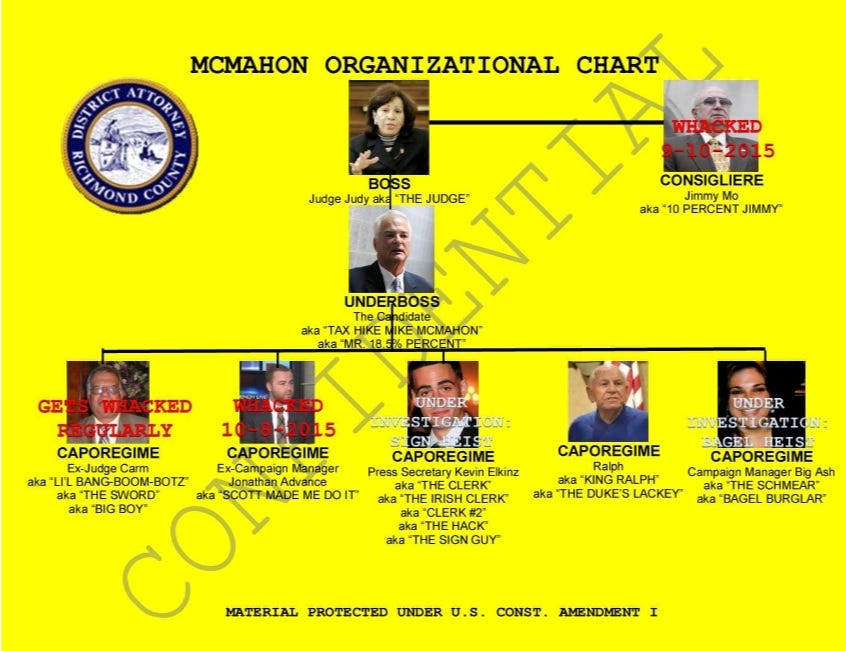
Luthmann did not hold back in expressing his views on the District Attorney's role in systemic corruption. He speculated about the motivations of the initial special prosecutor, Attorney Thomas A. Tormey Jr., suggesting a reluctance to partake in McMahon’s agenda. “Maybe Tormey didn’t want to be part of McMahon's witch hunt,” Luthmann surmised, implying a deeper, politically motivated conspiracy.
We looked back at November 2018 coverage by the Staten Island Advance, and the facts don’t contradict Luthmann:
In 2016, McMahon requested the appointment of a special prosecutor.
Rooney initially appointed attorney Thomas A. Tormey Jr. to probe allegations of criminal impersonation, forgery and falsifying business records made by one or more persons against an individual.
The order did not specifically name Luthmann as the target, although sources had identified the lawyer as the subject of the probe.
A special grand jury was empaneled by Nelson, who took over the case from Tormey, to hear evidence this past summer.
[Debi] Rose, [Mike] McMahon, Councilman Joseph Borelli (R-South Shore) and Castorina testified before the panel, said a NY1 report.
Nelson said the charge of falsely reporting an incident to police stems from a report Luthmann allegedly filed claiming his computers were “trespassed.”
However, it was determined that was not the case and Luthmann had made false statements to a detective, said Nelson.
In statements, McMahon and Rose said they are anxious for the case to move forward.
“As one of the victims in this case, I am happy the grand jury voted this indictment holding accountable this defendant,” said McMahon. “We know that he has been alleged to misuse many weapons in his arsenal, from his law license, to firearms, to verbal threats, and, particularly here in this case, social media to allegedly steal people’s identities, further his criminal enterprises, and to try and subvert the election process.”
The D.A. added he is grateful to Nelson “for his great efforts.”
Said Rose, “I am outraged at Mr. Luthmann’s consistent efforts to deceive and mislead the voting public. Criminal impersonation, especially in the age of social media, is a real threat to our democracy, and should be prosecuted as such. I look forward to seeing justice done in this case, and I hope it discourages future wrongdoers.”
Speaking on Materna’s behalf, her lawyer Andrew Stengel said, “Janine and I are pleased that the special prosecutor and grand jury agreed that Mr. Luthmann committed fairly serious election-related crimes against her.”
Gulino declined comment.
Luthmann says the entire grand jury determination was crooked and tainted by Nelson’s crimes and McMahon’s “marionetteering.”
“Everyone waited for a chance to put a knife in me in the media and the grand jury. They wanted to cut me up and feed me to the poor, which they did. But like Mao in the mountains, I’ve regrouped. Now I’m back and will push them to the legal sea of their downfalls. Every single one of them. It’s all I’ve been thinking about for the past six, going on seven years,” Luthmann said.
Luthmann also said he’s made peace with some through personal growth or explicit apologies. He said part of his recovery process was embracing the underlying philosophy of twelve-step programs.
“I realized two fundamental things. First, God was always with me, but I had to let Him in and put myself in His Hands. And second, where I did wrong to people morally, I had to admit it. I sent several people letters. What I did to Debi Rose was morally wrong. I think it was politically and legally permissible. But I shouldn’t have done it,” Luthmann said.
Luthmann had nothing nice to say about NYC Council Member Kamillah Hanks, who he is now suing. “Look at the crooks, Kevin and Kamillah, who are now in [Debi Rose’s] seat. They are robbing left and right. If I had to do it over again, I would have been at Camp Debi Rose in 2017. I’m sure many of the other people Kevin and Kamillah screwed, like Mike Cox, Chantal, and so many others, would probably also express regrets. I don’t know why Priscilla Marco and others follow them around like acolytes and continue to get pissed on. It’s abusive and sad. But they’ll get theirs. I’m weeks away from full financial disclosures in my court case. One of the reasons why I picked Manhattan was because pending motions to dismiss don’t stay discovery under the Manhattan rules,” he said.
There are several people Luthmann says he can’t bring himself to forgive. “I don’t know if it’s vendetta from my Sicilian grandmother or ‘Irish Amnesia’ from my father’s side, but I remember all the slights and all those who twisted knives. They say to dig two graves, but I’ve already risen from the dead.”
SERVED: NYC Council Member Hanks and NYS Justice Castorina
By M. Thomas Nast Last month, a former attorney, federal inmate, and now an investigative reporter for this publication, Richard Luthmann, filed an extensive, multi-million dollar complaint in Manhattan Supreme Court. The filing put several high-profile NYC elected officials and those connected to them in the legal hot seat.
Luthmann says that while he’s “softened” on Attorney and former SI Dems Party leader John Gulino, he has a list of others he intends to bring to a “legal reckoning.”
“The November 2018 article in the SI Advance [quoted above] has it all in there. I sat in Brooklyn MDC and fixated on it for months. Gulino said ‘no comment.’ There is room for me in my heart to say I was wrong. He and Donny Bosco tried to bring me into the fold. I showed an immaturity and a lack of respect. Now, I realize that, especially for Sicilians, respect is the most important thing, and for good reason. I believe Gulino recognizes my story as a tragedy - driven by a lot of things. If I had to do it over again, I would have sent the guy real estate closings and tried to learn from him. We had much more in common than we did that divided us. And I was a bit of an asshole, but he showed class and respect by not piling on,” Luthmann said candidly.
Invoking “The Godfather,” Luthmann said that there are some that “get a pass.” And there are others that will “never be forgiven.”
How Much is Your Freedom Worth? Luthmann's Ominous Message to NYC's Power Players
Make no mistake. It’s not revenge he’s after. It’s a reckoning. Former Staten Island Attorney Richard Luthmann has a list of people, and he says he always looks at that list. He has since his incarceration.
“Ron Castorina’s betrayal is well known. The guy wanted me to [expletive] him. Then he doesn’t know me? Under oath? At the grand jury? Come on,” Luthmann said, pointing to how he was in disbelief that Eric Nelson wasn’t suborning perjury because he clearly read the Luthmann-Castorina Facebook Messenger messages.
“Joe Borelli is another little shit I’ve known for 35 years. He’s out for himself. Ignizio taught him well. He can’t be term-limited quickly enough. I can detail how he’s sold out Staten Island Republican donors to the uni-party in every election cycle for the last ten years,” Luthmann said.
Luthmann didn’t have much to say about Janine Materna and Diane Savino, who he said “twisted the knife” in the media. He says both are witnesses in his Manhattan case and will “get theirs.”
But Luthmann’s singular focus seems to be Mike and Judy McMahon as his prime targets. He referred to the Pulizotto tapes, explaining his situation.
“They had to survive the Pulizotto tapes where Judge Judy was steering warrants to land mostly black folks in jail to pad Mike's conviction stats. It's the same Democrat KKK Party as it's always been. Now they just incarcerate the black man to make the white politicians feel good instead of lynching them,” Luthmann stated, using this comparison to highlight what he sees as racial injustices perpetuated by the current legal system.
Luthmann made comparisons of the McMahons to “the Clintons” and “Old Tammany.”
“They will do anything and say anything that is politically expedient. And they use old-school Boss Tweed thug tactics to maintain their political power, silencing critics, even the press. That’s exactly who you want as your DA and a judge. Give me <expletive> break,” Luthmann said.
In his statements, Luthmann condemned the broader New York State justice system, suggesting systemic issues of injustice and corruption.
“This case made Eric Nelson. He had carte blanche because the McMahons both had a hard-on for me,” Luthmann claimed, indicating that his prosecution was part of a larger vendetta-driven legal action. “But I’ll get mine. I’ll get financial disclosure from Nelson and use that to bury him. Then I’ll give him a Faustian choice to stay quiet and dead or flip on the McMahons. He’s a pink. What do you think he’ll do? Especially when he’s knocking on the door to retirement,” Luthmann said.
Always with a sense of humor, Luthmann said, “Make sure that you write that if Nelson ends up dead after this article, it’s probably because Judy McMahon got the number to Hillary Clinton’s ‘suicide hotline.’ I don’t want to be blamed from 1,300 miles away.”
Luthmann's post-hearing statements in several media outlets were not mere critiques but a vehement outcry against perceived corruption and abuse of power by figures of authority within the legal system. His direct and unfiltered remarks painted a picture of a man profoundly aggrieved and determined to expose the alleged injustices and systemic failures within New York's judicial landscape.
The Trauma Behind Bars: Luthmann’s Ordeal
Based on his recent media attacks, some may say Luthmann “hasn’t learned a thing” from prison. But the facts show the exact opposite. Luthmann's time behind bars was marked by a series of traumatic experiences, which he detailed in his statements and attributed directly to the actions taken during his prosecution. The prison ordeal provides a stark backdrop to his legal battle, underscoring the personal toll of his fight against what he perceives as a corrupt judicial system.
Luthmann also appears to be a person publicly processing pain. He spoke candidly about his time in the Special Housing Unit (SHU), describing it as a period of intense mental and physical torment. “My nearly two months in the SHU were nothing short of torture,” Luthmann stated, painting a grim picture of his imprisonment.
Scandalous Revelations: Luthmann Points Fingers at Eric Nelson for Prison Horrors
NOTE: This story appears on Frank Report (www.frankreport.com) along with additional coverage of Luthmann’s shocking prison rape and torture allegations.
He attributed this treatment to the machinations of the case against him, suggesting that his placement in the SHU directly resulted from Nelson’s alleged misconduct. “I would never have been in those situations but for Eric Nelson’s felonies.”
Further compounding his suffering, Luthmann disclosed that he was a victim of multiple rapes while in prison, incidents that occurred after his release from the SHU. “The rapes I endured in prison are a direct consequence of the corrupt actions taken against me,” Luthmann claimed, linking these traumatic experiences to the broader narrative of his legal battle.
“The trauma of what I endured has left deep scars,” Luthmann shared, revealing the lasting effects of his time in prison on his mental health. He directly blames Nelson for his suffering. “What I went through, the inhumane treatment in the SHU, the abuse I suffered afterward, I hold Nelson responsible for that under the laws of God and man,” Luthmann asserted, positioning his ordeal as a consequence of what he describes as a corrupt and vindictive legal process.
His reflections on the ordeal give insight into his state of mind during the plea. “I was focused on avoiding the mental torment of the SHU, whatever the cost,” Luthmann recounted, suggesting that his plea was a desperate bid to escape further psychological harm.
His ordeal behind bars is a central element underscoring the severity of the consequences he faced due to a prosecution’s actions.
An Involuntary Plea: Luthmann’s Coerced Decision
The circumstances surrounding Richard Luthmann's plea have become a focal point in his legal battle. Luthmann asserts that his decision to plead guilty was unknowing, involuntary, unintelligent, and constitutionally infirm. His account of the events leading to his plea paints a picture of coercion, significantly impacting the legitimacy of his conviction.
Luthmann detailed the intense pressure he faced while in custody, which he argues influenced his ability to make a voluntary decision. “I was under immense pressure, facing threats and manipulation,” Luthmann stated. He said the decision was made out of desperation rather than informed consent.
BOP Uses Prison Rape Threat to Torture Keith Raniere in SHU — Sadistically
This article was first published in the Frank Report (www.frankreport.com) on March 5, 2023. Read it here: BOP Uses Prison Rape Threat to Torture Raniere in SHU — Sadistically.
Luthmann argues that this mental anguish compromised his ability to make a rational decision, casting doubt on the voluntariness of his plea. He further contends that the environment in which he made his plea was intimidating and conducive to coercion.
“The atmosphere in the federal prison was threatening, with a clear message that I had little choice but to plead guilty,” he recounted. This claim suggests a plea process tainted by fear and coercion, challenging the integrity of the legal proceedings.
His reflections on the plea process reveal a deeply troubling aspect of the criminal justice system – the potential for pleas to be extracted under conditions far from free and voluntary.
Judge Donald Leo's Pivotal Role: Upholding Justice While Balancing Judicial Politics
The role of Judge Donald Leo emerges as crucial in determining the course of justice concerning Eric Nelson’s apparent transgressions. As the presiding judge, his decisions carry the weight of adjudicating the immediate case and potentially setting precedents regarding prosecutorial conduct and the integrity of plea agreements.
“Judge Leo’s decision in this matter will be a testament to the integrity of our justice system,” Luthmann stated, highlighting broader implications.
Luthmann’s expectation from Judge Leo is not just a personal acquittal but a restoration of faith in the judicial process.
“This is an opportunity for Judge Leo to correct the gravest miscarriage of justice when trusted government officials break the scales of the law and wield it as a weapon against a defenseless defendant,” Luthmann argued, implying that the judge’s ruling could and should serve as a corrective measure against prosecutorial crimes.
The gravity of Judge Leo’s decision is further amplified by Luthmann's claims of having been forced into a plea that wasn’t knowing, intelligent, or voluntary.
“The decision by Judge Leo will either uphold the principles of justice or allow the shadows of doubt and corruption to linger over our legal system,” Luthmann stated, emphasizing the case's potential impact on public trust in the judiciary.
The former Reform Party Law Chair also realizes the delicate position.
“Judge Leo is in a tough spot, having to balance the scales of justice amidst the murky waters of judicial politics,” Luthmann stated, acknowledging the complex environment in which New York judicial appointments operate. “Everyone wants to get ‘made’ as a Supreme Court Justice for a full 14-year term. That requires the county political leaders to be on board. I wouldn’t be surprised if Judge Leo were even more concerned of the consequences of a McMahon political black-ball than Justice Mundy was because Mundy had already been elected to the bench.”
Luthmann says these concerns raise even more systemic issues about politically elected judges within the NYS judicial system and the Office of Court Administration’s role, which the Court previously referred to on the record.
“Judge Leo’s decision will either affirm or challenge the status quo of how justice is administered. Guys who want appointments don’t rock the boat,” Luthmann remarked. But this is more than just my case; it’s about setting a precedent for how similar cases of prosecutorial criminality are handled in the future,” Luthmann added, highlighting the far-reaching consequences of Judge Leo’s impending judgment.
In this context, the role of Judge Leo is not merely judicial but also symbolic, representing the ability of the legal system to self-regulate and uphold legal, and not just ethical, standards.
Conclusion: Is a Wrangle With Luthmann A Battle the New York Establishment Wants or Needs?
Looking at the evidence of Nelson’s criminal conduct, we must question whether this confrontation with Luthmann is one the establishment wants or needs. Luthmann served three years in prison for actions many consider mere political satire and protected activity. He argues that his case is a critical test for the New York State’s judicial system. And he has a point. The same one Donald Trump is sounding from the rooftops to his throngs of MAGA supporters.
“For me, there’s nothing left to lose,” Luthmann stated, reflecting on his conviction for what he, and many others, regard as protected political speech. “But for the New York establishment, there is everything to lose. Upholding these charges not only chills free speech and political expression but casts a long shadow over the integrity of our judicial system,” he added.
“And I think they know by now I’m not going to stop,” he said.
Luthmann’s legal battle brings the potential politicization of the justice system to the forefront. “This case fans the flames of the worst of our devils and not our better angels,” he remarked, suggesting that his prosecution was more about political retribution than justice. Luthmann sees his case as emblematic of a more significant issue - a justice system that political pressures and personal vendettas may sway.
“If these political hacks want to ‘Get Trump,’ they would have let me go a long time ago. The political nature of my case makes the Falsification of Business charges - both against me and Trump - a pure Rorschach test. Everyone will see something different, and what you see will not be based on facts but on preconceived political beliefs. In essence, that is the clearest failure of due process imaginable,” Luthmann said.
The theme of prosecutorial misconduct, especially the felony crimes alleged against Special Prosecutor Eric Nelson, is central to Luthmann’s argument. He accuses Nelson of committing egregious and unprecedented criminal actions to secure his indictment. He claims Nelson was under pressure from figures like Mike and Judy McMahon.
“Nelson’s actions, detailed in the smoking gun email of August 12, 2018, and his subsequent perjury in court documents, are more than just misconduct; they are brazen crimes,” Luthmann asserted.
Luthmann referenced prominent retired Jewish-American, Romanian Soviet Refugee, and Ninth Circuit U.S. Court of Appeals Chief Judge Alex Kozinski’s statement on prosecutorial misconduct, emphasizing the role of judges in curbing such behavior. As Luthmann wrote:
Eric Nelson is the poster boy for everything wrong with American Justice. He knowingly disregarded the Appellate Division’s Orders, Rules, and rulings. And he lies right to Judge Leo’s face in open court and sworn papers.
He must be held accountable so that public confidence in the system, which is already waning, is restored.
When a public official behaves with such casual disregard for his constitutional obligations and the rights of the accused, it erodes the public’s trust in our justice system, and chips away at the foundational premises of the rule of law. When such transgressions are acknowledged yet forgiven by the courts, we endorse and invite their repetition. United States v. Olsen, 2013 WL 6487376 (9th Cir. 2013). Dissent by Chief Judge Alex Kozinski.
The misconduct in question is more than the outgrowth of a misguided prosecutorial culture that turns its back on wrongdoing, fostering a philosophy of “win at all costs,” irrespective of the damage it does to public faith in the fairness of our criminal justice system.
Eric Nelson’s transgressions are knowing, intentional, and criminal.
As Judge Alex Kozinski said: “Only judges can put a stop to it.”
Luthmann’s fight underscores the need for a judicial system that upholds the highest standards of fairness and integrity, free from political influence, government overreach, and even prosecutorial crimes.
He sums up his position best when he says:
“As Judge Kozinski noted, only judges can put a stop to the most egregious prosecutorial misconduct. Now, it’s up to Judge Donald Leo to hold ‘Crooked Eric Nelson’ accountable for his felony actions, which have clearly crossed the line as a ‘criminal prosecutor’ in the sense of the word we’d thought we’d never see in American Justice.”


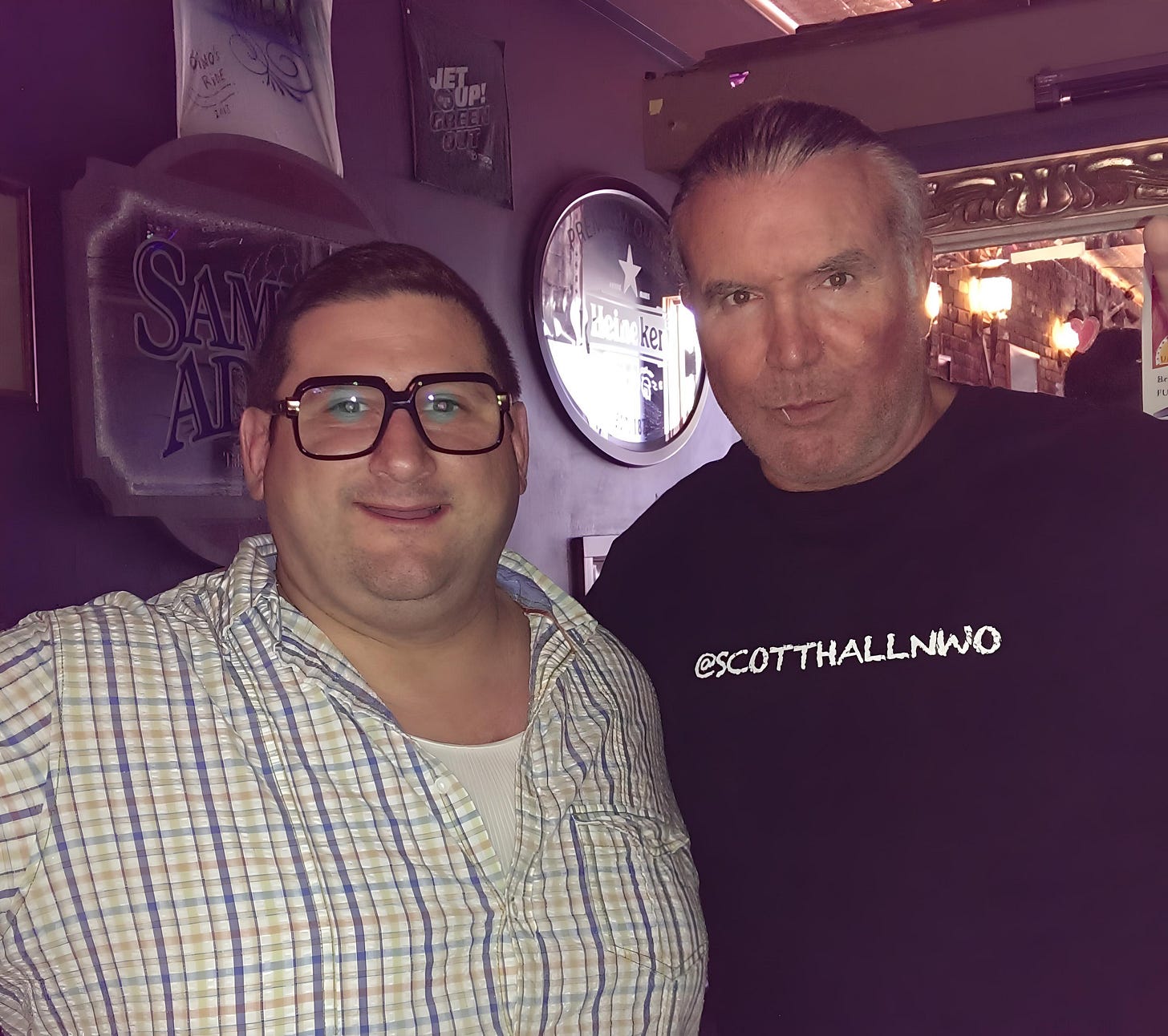

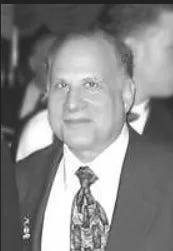

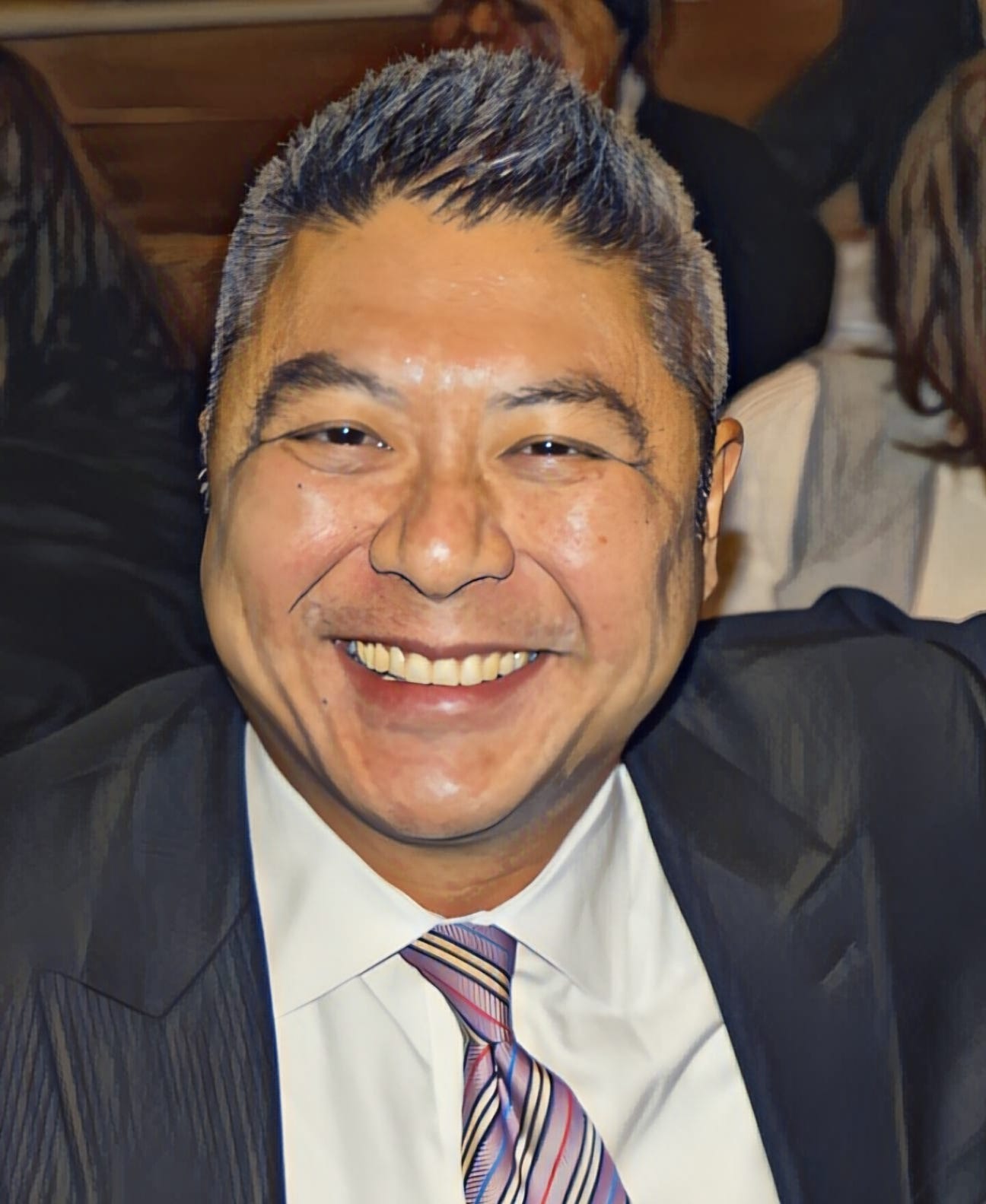
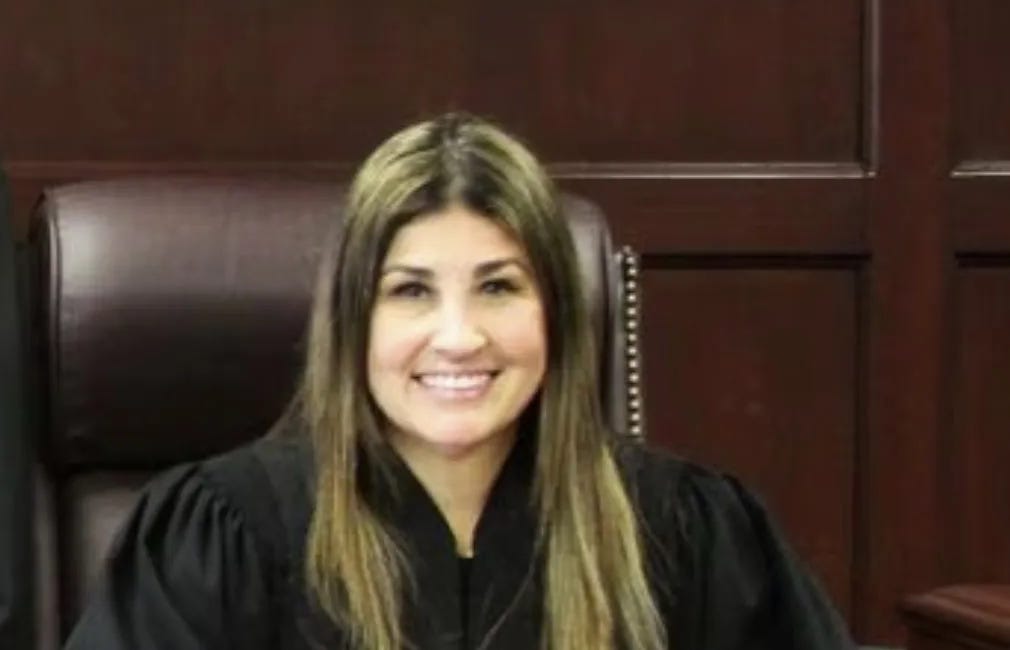

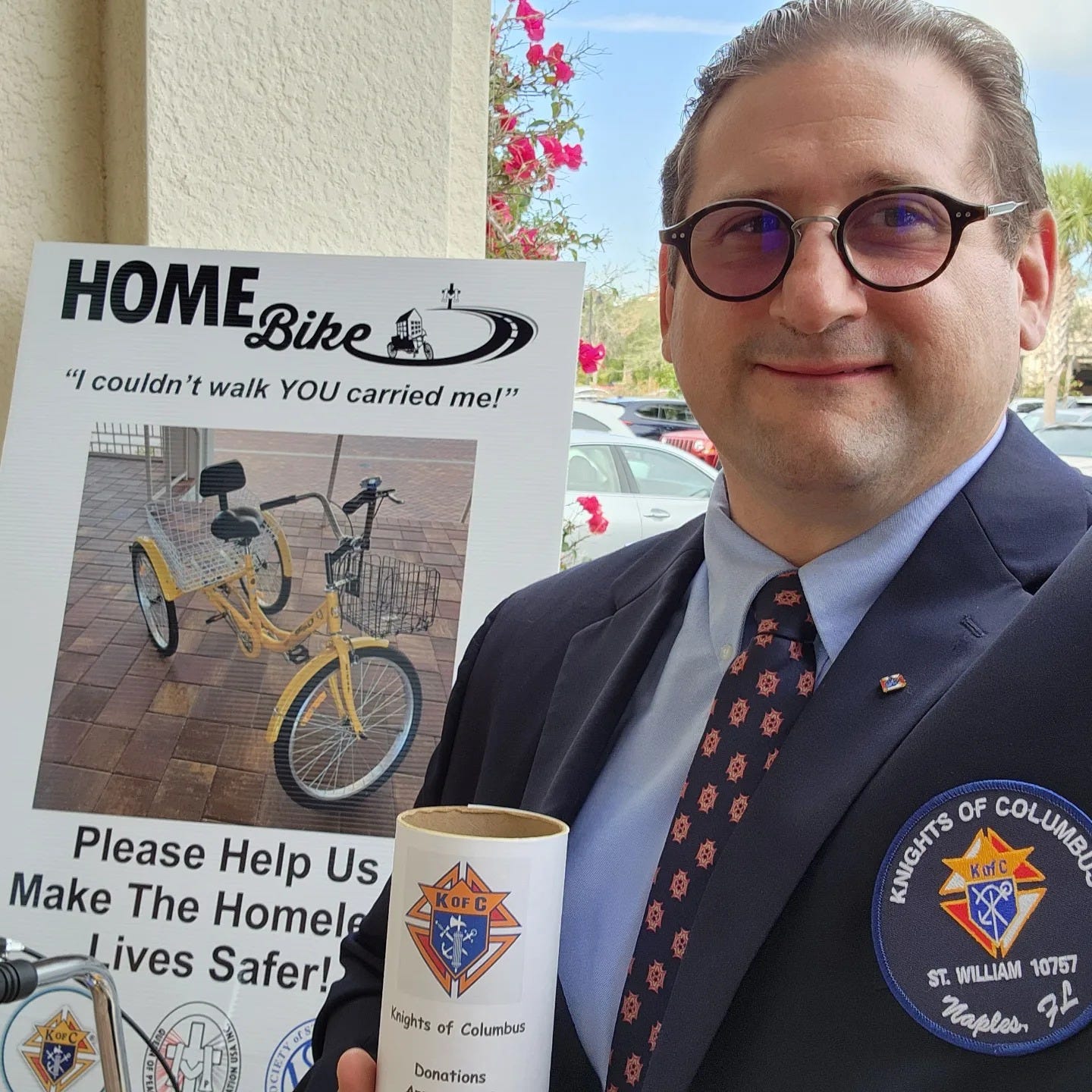
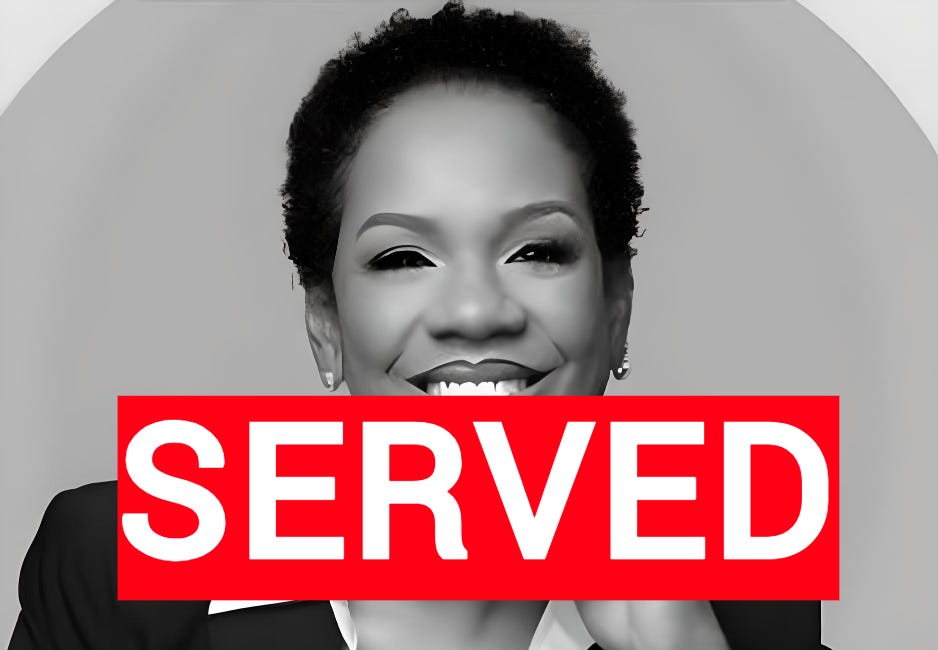


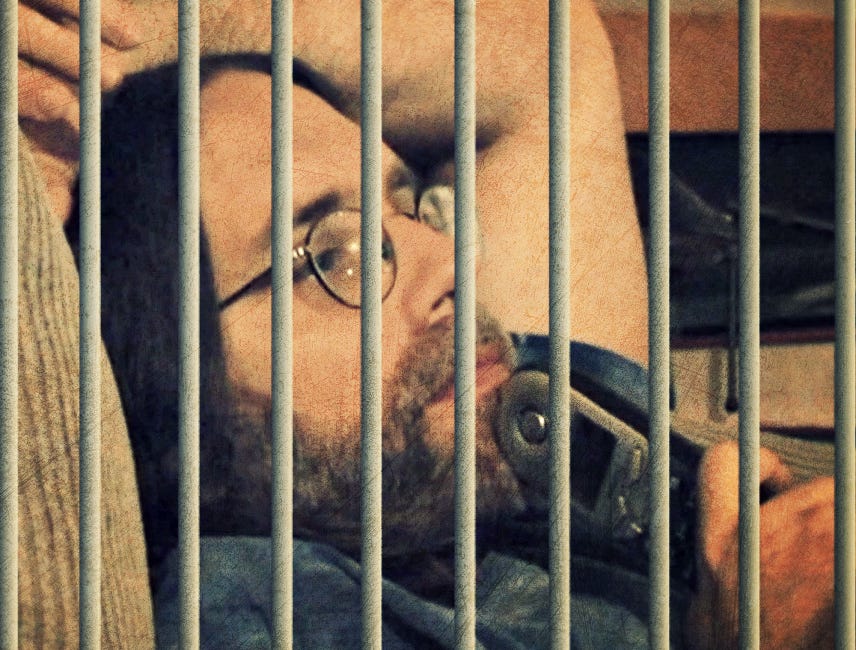
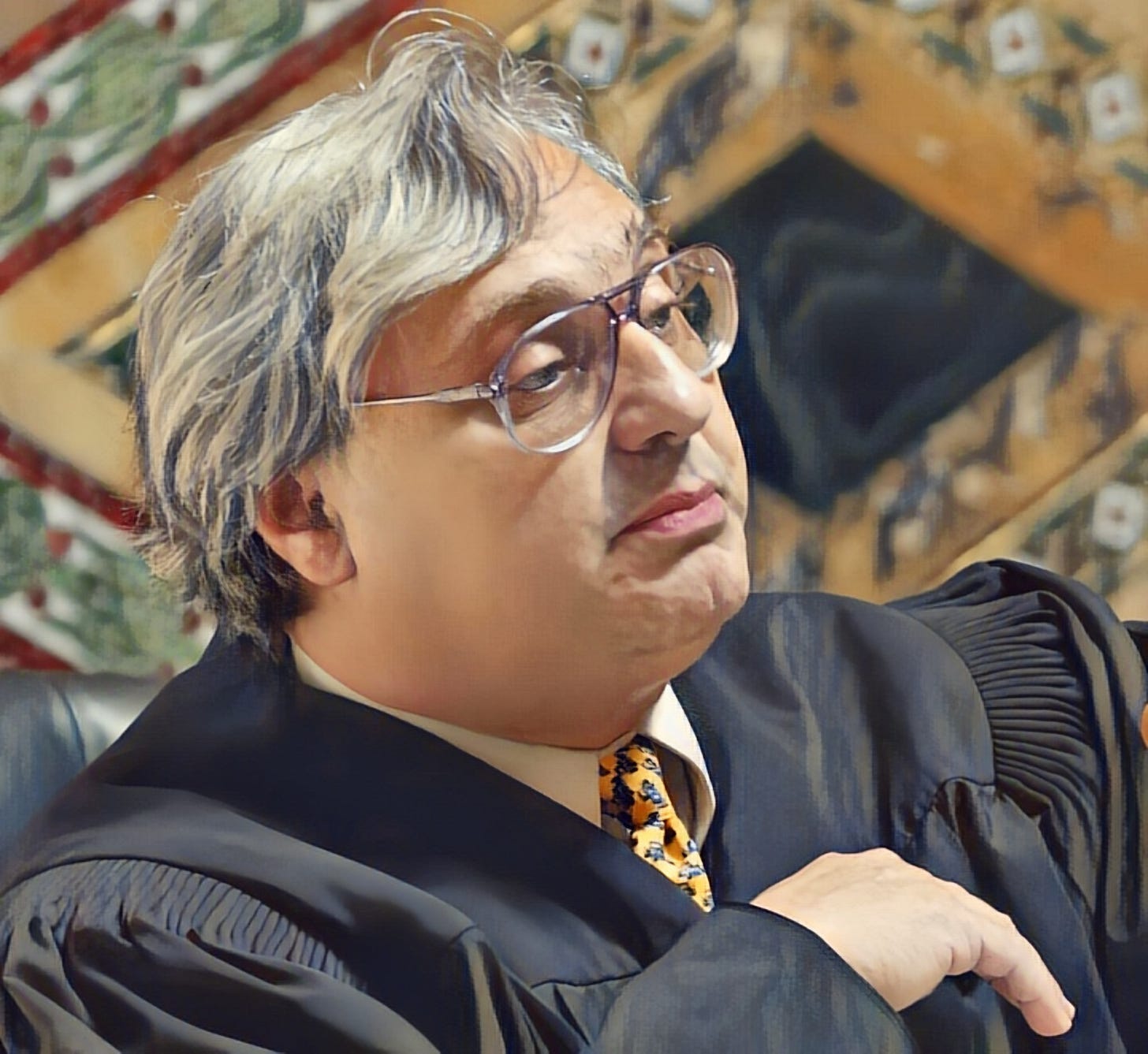

Let’s hope that Judge Leo does the right thing
And not be swayed by McMahon and Company
All Eyes will be watching 👀
Judge Leo is putting his reputation on the line